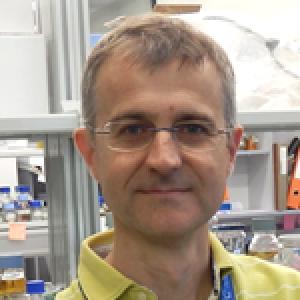Food Biotechnology
Bioactive Proteins and Peptides
Description
The members of the group are experts in food microbiology, microbial biotechnology of filamentous fungi and yeasts, and in the characterization of bioactive peptides and proteins. Our research is aligned with three main goals, from the more consolidated to the future strategic ones: (1) The identification, rational design, characterization of the mode of action and biotechnological production of bioactive peptides and proteins, including mainly antimicrobial (antifungal) but also health-promoting peptides and proteins; (2) The development of gene editing, synthetic biology and biotechnological tools to improve the standardized biotechnological use and genetic transformation of filamentous fungi; (3) The development of fungi as sustainable and efficient biofactories to produce proteins and compounds of agricultural and food interest. We combine microbiological, biochemical, biotechnological, and molecular genetic techniques together with cellular biology and functional genomic approaches.
Objectives
- Currently, we are studying the so-called antifungal proteins (AFPs) of fungal origin, of which the AfpA from the fungus Penicillium expansum is a promising candidate whose use in food conservation, plant protection and clinic has been patented and is being pursued. We plan to decipher its molecular and cellular mode of action, structure and structure-activity relationships to advance in the design and production of improved new-to-nature sequence variants in fungal biofactories (projects AFP2WORK and INHALAFUNG). We manage a portfolio of different natural and rationally designed AFPs produced in fungal biofactories and with distinct activity profiles.
- To continue the development of gene editing (i.e., CRISPR/Cas9) and synthetic biology tools (the FungalBraid platform) that are exchangeable among fungi and even with other organisms (i.e., plants) to improve the biotechnological use of filamentous fungi (previous projects FunFact and SUSPHIRE).
- To develop filamentous fungi from the genera Aspergillus and Penicillium as safe and sustainable fungal biofactories to produce biomolecules and proteins (including antifungal proteins) of agricultural and food interest (project AFP@scale and previous Pre-HLB).
- To identify and use fungal isolates for plant biomass degradation and valorization of agri-food byproducts, to achieve a sustainable and cost-effective production of natural biomolecules, enzyme cocktails and AFPs of interest (project BioValRice).




